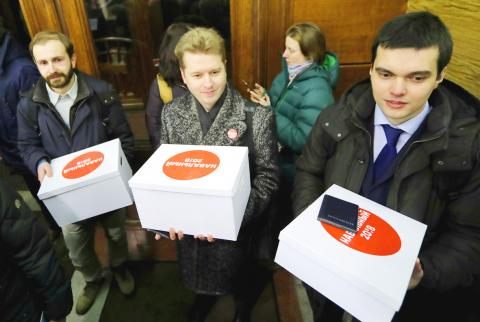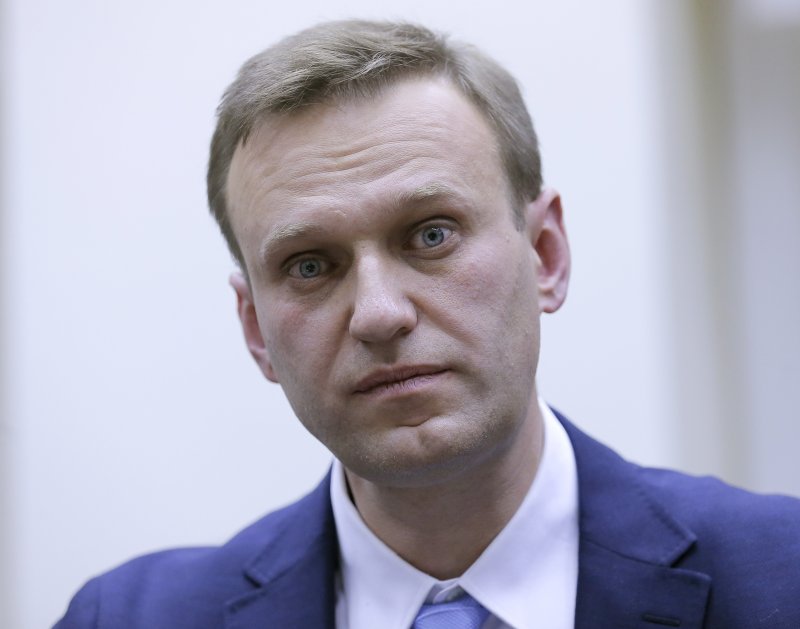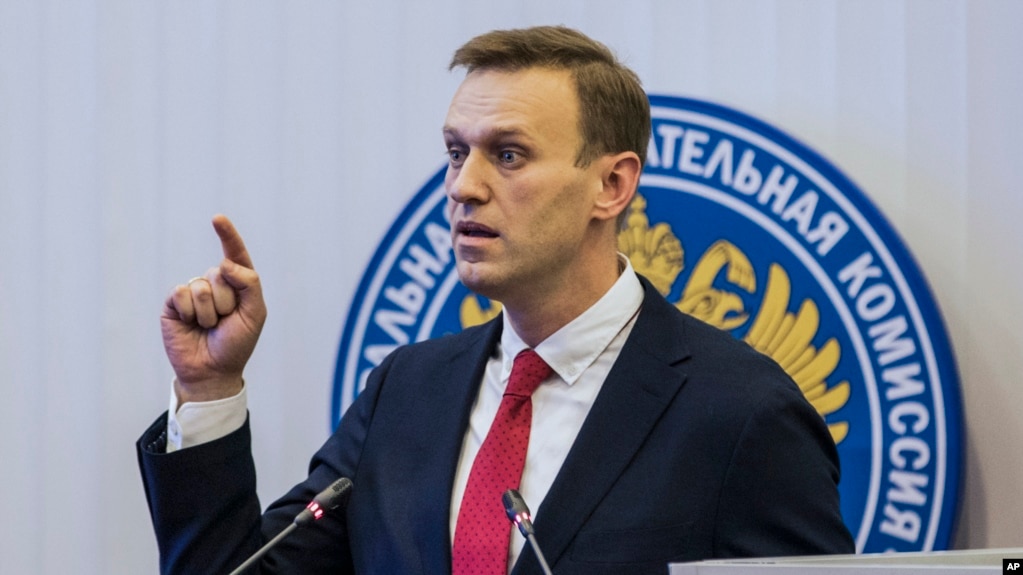More than 15,000 Russians on Sunday endorsed the candidacy of Alexei Navalny, seen as the only opposition leader who stands a fighting chance of challenging Russian President Vladimir Putin in a March vote. “An election without us is not an election,” Navalny said in Moscow at about 5pm GMT before submitting his nomination to the Central Electoral Commission, which will rule whether he can run. Authorities have deemed the 41-year-old ineligible to run due to a criminal conviction, saying “only a miracle” would help him get registered. Navalny has described the conviction as politically motivated. Thousands backing the charismatic lawyer met in 20 cities from the Pacific port of Vladivostok to Saint Petersburg in the northwest to nominate him as a candidate in the presence of electoral officials to boost his chances of contesting the March 18 ballot.
His campaign said more than 15,000 people endorsed him nationwide. An independent candidate needs 500 votes to get registered with election authorities, according to legislation. In Moscow, more than 700 people supported Navalny’s candidacy as they gathered in a huge marquee set up in a picturesque park on the snow-covered banks of the Moscow River. “I am hugely happy; I am proud to tell you that I stand here as a candidate of the entire Russia,” Navalny told supporters earlier. “We are ready to win and we will win these elections,” Navalny said before finishing his speech in a cloud of confetti. Navalny said that if he is not allowed to put his name on the ballot, he will contest the ban in courts and repeated his threat to call for the polls to be boycotted if he did not get registered. “Thwart the elections if they are dishonest,” he told supporters.
Members of the electoral headquarters of opposition leader Alexei Navalny hold boxes of files before submitting his documents to be registered as a presidential candidate at the Central Election Commission in Moscow on Sunday.
Putin, 65, announced this month that he will seek a fourth presidential term, which would extend his rule until 2024 and make him the longest-serving Russian leader since dictator Joseph Stalin. Opposed by token opposition candidates, he is widely expected to sail to victory. However, with the result of the March vote a foregone conclusion, turnout could be low, harming Putin’s hopes for a clear new mandate, observers say. Navalny, who has tapped into the anger of a younger generation who yearn for change, hopes that popular support for his Kremlin bid would pressure authorities into putting his name on the ballot. “If Navalny is not allowed to run, I am not going to vote,” pensioner Marina Kurbatskaya said in Moscow. “I don’t see anyone else who I want to become president.”
Navalny has built a robust protest movement in the face of persistent harassment and jumped through multiple hoops as he campaigned across the nation in an effort to shift attitudes amid widespread political ennui. He says he is the only Russian politician who has run a genuine Western-style political campaign, stumping for votes in far-flung regions. Many critics scoff at Navalny’s Kremlin bid, but the anticorruption blogger says he would beat Putin in a free election if he had access to state-controlled TV, the main source of news for a majority of Russians. Navalny shot to prominence as an organizer of huge anti-Putin rallies that shook Russia in 2011 and 2012 following claims of vote-rigging in parliamentary polls. The rallies gradually died down, but he has been able to breathe new life into the protest movement this year, bringing out tens of thousands of mostly young protesters onto the streets.
MORE




